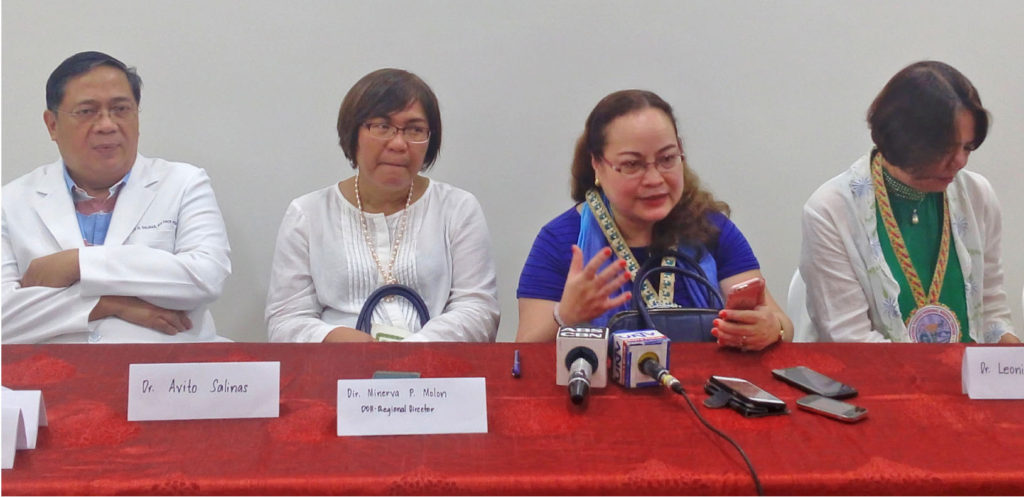
TACLOBAN CITY- Cuban doctors may just find their way working in remote areas in the country who have no Filipino doctors.
This was disclosed by Health Secretary Paulyn Jean Ubial who said that the Cuban government had assured her that they are willing to send their doctors to areas in the country where there are no serving doctors without any cost to the government.
Ubial, who made this disclosure in a press conference, was in the city on Thursday (Sept.8) to attend the inauguration of the Mother and Child Building of the new Eastern Visayas Regional Medical Center (EVRMC) in Barangay Cabalawan.
According to Ubial, there are still “isolated and far-flung areas” in the country which are not served by doctors.
And these unserved areas may just be filled in by the Cuban doctors. And the good thing of this proposal, she added, the Philippine government will not be paying these Cuban doctors
“I warned our Filipino doctors. The Cuban government has assured me if we open up positions for doctors even in the far-flung, isolated areas, they can fill in our need for free,” Ubial said.
“The Cuban doctors are paid by the Cuban government so kahit nandito sila, babayaran ang suweldo nila sa Cuba.Pagbalik nila doon, may positions pa din sila,” she added.
Ubial went to Cuba last August 23-26 to study their health care system which enjoys one of the world’s best doctors to population ratio.
A doctor in Cuba serves around 1,075 populations.
In contrast, a doctor in the country has to serve 33,000 populations.
Ubial, however, could not exactly say how many remote areas in the country that are unserved by doctors.
But in the case of Eastern Visayas, the second poorest region in the country where there are also dent of doctors, 14 areas which are mostly in Samar provinces (Samar, Eastern Samar and Northern Samar) have no serving doctors.
The Health Secretary said that lack of interest among Filipino doctors to be assign or serve in remote areas in the country is the reason why these areas does not have a doctor of their own.
She also said that doctors prefers to work in private hospitals than in the government also contributes to this situation.
Ubial said that she is seriously studying this Cuban proposal as she still prefers local doctors to serve in these remote areas.
She also said that she is thinking of seeking the help of medical schools, particularly those run by the government, to have an agreement with the Department of Health wherein their students will be mandated to work in these areas to include public health facilities.
“I challenge the state owned medical schools to have a MOA(memorandum of agreement) with us na mandatory rural practice, mandatory in government hospitals kasi ang shortfall natin, hindi lang sa rural areas pati government hospitals, kulang sa doctors,” Ubial said.
In the case of EVRMC, the region’s biggest public hospital, it needs 90 doctors. The hospital has around 120 doctors which is still not enough considering of the huge number of patients it cater. (JOEY A. GABIETA)



